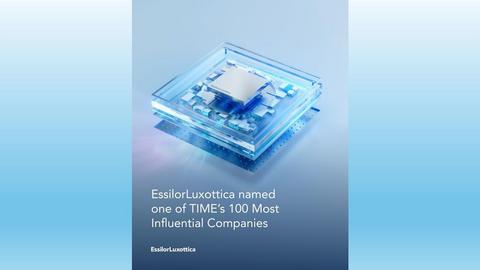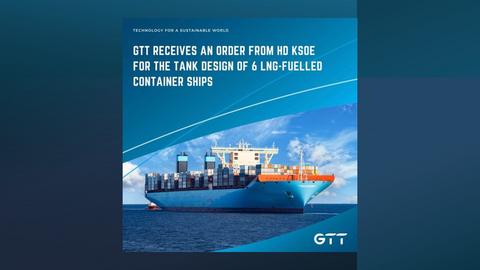Companies news
CMA CGM Launches Global Biofuel Bunkering Trial in Singapore

· The CMA CGM Group starts a global trial to scale up wider adoption of biofuel, moving forward on its path to become a Net Zero Carbon Company by 2050.
· The trial will involve up to 32 containerships serving multiple key trade lanes.
· CMA CGM, leading shipping’s energy transition with a fleet of 44 e-methane ready vessels by the end of 2024.
The CMA CGM Group, a world leader in shipping and logistics, with the support of the Maritime and Port Authority of Singapore (MPA), started biofuel bunkering in Singapore as part of its global trial to scale-up the wider adoption of the clean energy. Its 10,640-TEU vessel, APL PARIS, was the first of the Group’s vessels on trial to be bunkered with biofuel in Singapore on February 23rd 2022. Ship-to-containership biofuel bunkering was conducted alongside simultaneous container loading and discharging operations before the vessel plies the Asia-South America rotation of the Pacific East Coast 2 service.
With this new global trial, the CMA CGM Group keeps moving forward to make shipping and logistics a more sustainable industry and reach its goal to go beyond carbon neutrality and become a Net Zero Carbon company by 2050.
A trial involving up to 32 ships deployed on multiple trade lanes
The 6-month global trial will involve up to 32 containerships running on a different blends of biofuel to measure carbon dioxide (CO2) and nitrogen oxide (NOx) emissions in order to obtain a trend analysis, which will be shared with the respective flag administration including MPA. Some of these vessels will be fuelled in Singapore with B24 biofuel, which comprises 24% used cooking oil methyl ester (UCOME) in the advanced biofuel blended with conventional fuels.
Ranging from ship sizes between 2,200 and 10,640 TEUs, these vessels on trial will serve several trade lanes including Asia-South America, Asia-Africa, Asia-Oceania, Asia-Mediterranean, North Europe–Oceania and North Europe-North America.
B24 can reduce carbon emissions by 21%. Completely compatible with modern ship engines, this “drop-in” fuel option can be run on all vessel types without requiring technical, safety or design adjustments, enabling ships to quickly start limiting their emissions.
Made from used cooking oil collected from food manufacturers, F&B businesses and households, the conversion of waste cooking oil into biofuel for transportation promotes a circular economy, providing a new and environmentally beneficial use for consumed oil.
Leading shipping’s energy transition with a fleet of 44 e-methane ready vessels by the end of 2024.
The CMA CGM Group is committed to making shipping and logistics a more sustainable industry and is taking concrete actions by adopting the best available solutions. The Group has chosen to invest in dual-fuel vessels that run on liquefied natural gas (LNG), avoiding up to 99% of atmospheric pollutant emissions. LNG is an important first step in reducing greenhouse gas emissions, and the engine installed on these vessels is capable of using BioLNG (reducing 67% in CO₂ emissions). In the coming years, those engines will use synthetic methane (including e-methane). The CMA CGM Group already has a fleet of 25 “e-methane ready” vessels in service and will have a total of 44 such vessels by the end of 2024.
Today, the CMA CGM Group is also using biofuel onboard container ships that serve Intra-Europe. Biofuel, together with alternative fuels such as LNG and biomethane among others, will make up 10% of the CMA CGM Group’s energy mix by 2023.
“This global biofuel trial and bunkering in Singapore advances CMA CGM’s energy transition, paving the way for biofuel to scale up as one of the solutions to decarbonise shipping. With the use of biofuels being assessed over multiple key trade lanes and onboard ships of various sizes, we shall gather a comprehensive data set to verify the biofuel’s performance as a marine fuel and gain insights into facilitating a wider adoption of biofuel as a clean fuel,” said Stéphane Courquin, Chief Executive Officer of CMA CGM Asia Pacific.
Quah Ley Hoon, Chief Executive of MPA said, “CMA CGM’s global biofuel bunkering trial demonstrates its commitment to clean energy transition in the shipping industry. As the world’s top bunkering and transshipment hub port, MPA is happy to facilitate APL PARIS biofuel bunkering in Singapore. We will continue to work with industry partners like CMA CGM to promote the use of greener marine fuels and drive the transition towards sustainable shipping.”
About CMA CGM
Led by Rodolphe Saadé, the CMA CGM Group, a global leader in shipping and logistics, serves more than 420 ports around the world on five continents. Backed by a fleet of 545 vessels, in 2020 the Group transported nearly 21 million TEU (twenty-foot equivalent units) containers. With its subsidiary CEVA Logistics, a world leader in logistics, which transports 400,000 tons of air freight and 2.8 million tons of land freight each year, and its air freight division CMA CGM AIR CARGO, the CMA CGM Group is continually innovating to offer its customers a complete and increasingly efficient range of new shipping, land, air and logistics solutions.
Committed to the energy transition in shipping, and a pioneer in the use of alternative fuels, the CMA CGM Group has set a target of carbon neutrality by 2050. An approach involving ongoing improvement which brings concrete results, with a decrease of 4% in the total CO₂ emissions of the Group in 2020.
Through the CMA CGM Foundation, every year the Group helps thousands of children through its actions to promote education for all and equal opportunity. The CMA CGM Foundation also acts in humanitarian crises that require an emergency response by mobilizing the Group’s shipping and logistics expertise to bring humanitarian supplies around the world.
Present in 160 countries through its network of more than 400 offices and 750 warehouses, the Group employs more than 110,000 people worldwide, including 2,400 in Marseilles where its head office is located.
Learn more at cmacgm-group.com
About the Maritime and Port Authority of Singapore (MPA)
The Maritime and Port Authority of Singapore (MPA) was established on 2 February 1996, with the mission to develop Singapore as a premier global hub port and international maritime centre (IMC), and to advance and safeguard Singapore's strategic maritime interests. MPA is the driving force behind Singapore's port and maritime development, taking on the roles of Port Authority, Port Regulator, Port Planner, IMC Champion, and National Maritime Representative. MPA partners the industry and other agencies to enhance safety, security and environmental protection in our port waters, facilitate port operations and growth, expand the cluster of maritime ancillary services, and promote maritime R&D and manpower development.
SOURCE: CMA CGM


